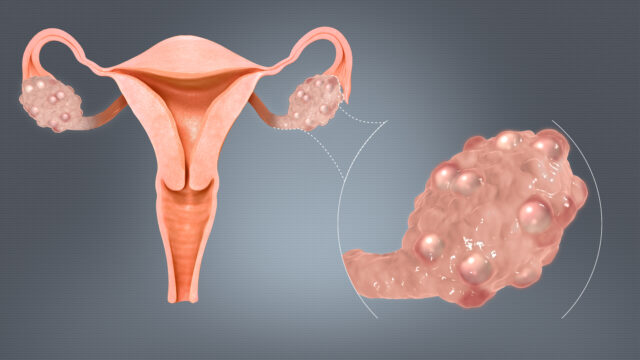A groundbreaking study presented at the 41st Annual Meeting of the European Society of Human Reproduction and Embryology (ESHRE) reveals a critical link between gut microbiota, metabolic imbalances, and poor pregnancy outcomes in women with polycystic ovary syndrome (PCOS).
Researchers found that women with PCOS exhibit a distinct gut microbiome and metabolic profile that may accelerate endometrial ageing and increase the risk of miscarriage and other complications—even in women under 35.

PCOS, a Major Cause of Infertility
PCOS affects up to one in five i.e. approximately 20% of women of reproductive age globally and is a leading cause of infertility. While many women with PCOS can conceive with fertility treatments, they remain at higher risk for complications such as miscarriage, gestational diabetes, preterm birth, and low birth weight. Until now, the mechanisms behind this elevated risk have remained unclear.
To investigate the underlying mechanisms, the study followed 220 women under 35 from 44 Chinese cities—half diagnosed with PCOS and half as healthy controls. Researchers performed gut microbiome sequencing and metabolomics analysis, along with laboratory studies on endometrial stromal cells (ESCs).
Implications for Future Treatment
The authors propose that both P. merdae and BCAA levels—particularly isoleucine—could serve as biomarkers to identify high-risk PCOS patients before pregnancy.
“The next step is to assess whether targeted interventions, such as probiotics, dietary changes, or BCAA-restricted diets, could restore a healthy uterine environment and reduce pregnancy risks,” Dr. Liu said.
The researchers propose that P. merdae and BCAAs could serve as biomarkers for identifying high-risk PCOS patients and may guide personalised treatment approaches in the future. “The next step is to explore whether dietary interventions, probiotics, or BCAA-restricted diets can reverse these effects and improve pregnancy outcomes”, concluded Dr. Liu.
Professor Dr. Anis Feki, Chair-Elect of ESHRE, praised the study:
“The study offers compelling evidence that metabolic and microbial disruptions in PCOS are not just systemic—they may directly impair endometrial receptivity, even in younger women These insights are a vital step toward personalised reproductive care for women with PCOS.”
Source: EurekAleart